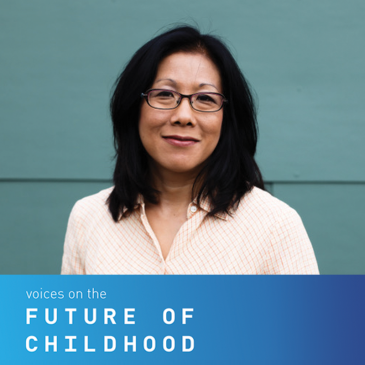For Part 2 of the Voices on the Future of Childhood series, we asked experts to take a stab at predicting the future by offering their thoughts on “What will change in the coming months and/or years as a result of the coronavirus pandemic.”
Adults might be less judgy about teen socializing through tech
 Mimi Ito, PhD, is the Director of the Connected Learning Lab at the University of California, Irvine, and Co-Founder of Connected Camps, a non-profit offering online learning and teaching opportunities for young people in all walks of life.
Mimi Ito, PhD, is the Director of the Connected Learning Lab at the University of California, Irvine, and Co-Founder of Connected Camps, a non-profit offering online learning and teaching opportunities for young people in all walks of life.
When I was researching the first big wave of teen mobile phone use in Tokyo in the nineties, adults were baffled by the “nagara-zoku” (multitasking tribes). Adults were similarly concerned when social media took off among teens in the US almost a decade later. As esports overtake traditional athletics in viewership, experts have moved swiftly to categorize gaming addiction as a clinical disorder. Adults are often quick to judge young people who favor online over face-to-face conversation.
We discovered that teens found value in texting because they lacked opportunities for private communication in physical spaces. They moved between school, public transportation, and homes—all settings controlled by adults. Texting is a lifeline to private communications with romantic partners and close friends, what researcher Misa Matsuda called their “full-time intimate community.”
Most youth will say they’d rather see friends in person but are limited in their mobility. Even when hanging out with friends at school or in public places, they are not able to have private conversations. Mobile and online communication changed that. People of all ages crave social connection, but teens are often uniquely separated from those whom they care deeply about. COVID-19 has given more people of all ages a window into this experience.
Reporters who once wrote about gaming addiction and the problems with screen time have reversed course in the face of COVID-19. We all look forward to the day when we can visit each other in restaurants, beaches, and homes. When that happens, I hope we don’t lose sympathy for young people who still need their phones and the Internet to stay connected to those who are dear but not near.
See more posts in this series:
Voices on the Future of Childhood
Alan Gershenfeld | Caroline Hu Flexer | David Kleeman | Jeremy Bailenson
Matthew Kam | Michael Rich | Mimi Ito | Warren Buckleitner

